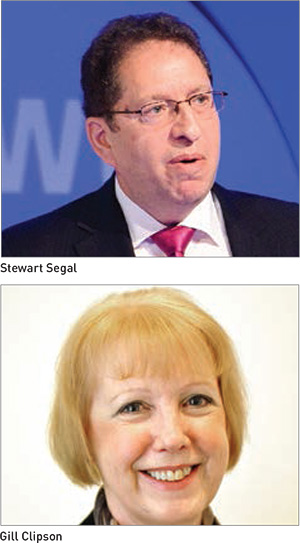The system of Functional Skills qualifications is “not broken, but could be improved,” according to the Education and Training Foundation (ETF) review of non-GCSE English and maths, out today.
The review, launched in January and led by former Jersey principal Professor Ed Sallis, was tasked with examining the perception and value of non-GCSE English and maths qualifications among employers.
It focussed on Functional Skills, despite a number of other alternatives to GCSEs, because they “have been designed to meet the needs of employers.”
It was commissioned after Skills Minister Nick Boles put the brakes on moves made by his predecessor, Matthew Hancock, to scrap Functional Skills in favour of GCSEs.
And it painted a largely positive picture of Functional Skills.

“The system of Functional Skills is not broken but could be improved,” according to the 19-page report, entitled Making maths and English work for all.
“If government continues with the policy of investing in the literacy and numeracy skills of young people the current arrangements for Functional Skills are a good basis on which to build.
“However, there are steps government and others can take to accelerate the rise in employer recognition and further improve the relevance, rigour and value of these qualifications.”
Professor Sallis said: “The review shows [employers] value practical maths and English skills. They value Functional Skills for their practical approach to problem solving and for their flexible assessment.
“The challenge will be to communicate this message and to ensure they are promoted so every learner has the chance to develop the maths and English skills employers require.”
The review heard from nearly 1,400 individuals and organisations — including 646 employers, 489 practitioners, 229 colleges, awarding organisations and independent learning providers, and 31 apprentices — through telephone and face-to-face interviews, online questionnaires, webinars and seminars.
It found 47 per cent of employers were aware of Functional Skills and of those, 87 per cent valued them.
The report said: “While it is vital that the whole education system, pre and post-16, improves success rates in GCSE, this review has found that many employers understand the contribution that non-GCSE qualifications, and especially Functional Skills, play in giving young people and adults the skills they need in the workplace.”
It added Functional Skills should not be seen as a “stepping stone” to help learners achieve GCSE but as “an alternative route … a qualification in its own right with the key purpose of satisfying employer requirements”.
However, the report added: “An alternative route will only have validity and currency if two criteria are met.
“Firstly, the standards have to be aligned to employability and the content has to be based on what employers need for their workforce. Secondly, Functional Skills have to have flexible but more standardised and rigorous assessment to give employers confidence in them.”
The report called for a further review of the standards on which Functional Skills are based and, to ensure maths and English qualifications remain relevant to employers, it also recommended curriculum content and assessment should be regularly reviewed “on the basis of regular, reliable and representative feedback from employers and providers, and student progress and attainment data”.
It comes just two months after Ofqual issued a four-point improvement plan for awarding organisations (AOs) in a bid to make Functional Skills qualifications “more valid and more reliable”.
And the ETF report further said awareness of the purpose and value of non-GCSE English and maths qualifications “particularly Functional Skills” should be raised through a publicity campaign, and it warned the qualifications should not be presented as a “consolation prize” for GCSE failure.
However, the report said the number of non-GCSE qualifications was “confusing” for employers and said the government should consider culling some to give the remaining ones “greater public and employer recognition”.
Mr Boles welcomed the review’s findings and recommendations, which he said showed “the current Functional Skills system is generally serving its purpose, and reflects the Government’s commitment to ensure all adults have the opportunity to study English and maths”.
Jeremy Benson, executive director for vocational qualifications at Ofqual said: “We welcome… confirmation of the important role that Functional Skills qualifications have in recognising the skills that are important to learners and employers.
“The review complements the work that we are doing to secure higher quality assessments and more consistent standards for Functional Skills qualifications. We will continue to work closely with the ETF and Government so that these important qualifications continue to develop in line with both learners’ and employers’ needs.”
David Russell, ETF chief executive said: “Everyone knows — or thinks they know — what a GCSE in maths or English stands for. But other qualifications exist too, and are increasingly common post-16.
“We set out to discover whether employers recognised them, and, if they did, whether they rated them. We found, unsurprisingly, that it is something people really want to talk about. Employers care about the quality of maths and English skills people have, not just the qualification.”
 Stewart Segal, chief executive of the Association of Employment and Learning Providers (AELP), said he was “pleased” by the “strong” employer support for functional skills the review highlighted.
Stewart Segal, chief executive of the Association of Employment and Learning Providers (AELP), said he was “pleased” by the “strong” employer support for functional skills the review highlighted.
“We look forward to working with the ETF and other partners on implementing the recommendations in Professor Sallis’s report to make Functional Skills an even more valued alternative,” he said.
Gill Clipson, deputy chief executive of the Association of Colleges, said the report’s conclusions “support our manifesto recommendation that young people should not routinely be asked to re-sit GCSE English and/or maths”.
She added: “We are looking forward to working with Ministers after May 7 in a joint effort to ensure everyone has suitable English and maths qualifications by the age of 19.”









Your thoughts